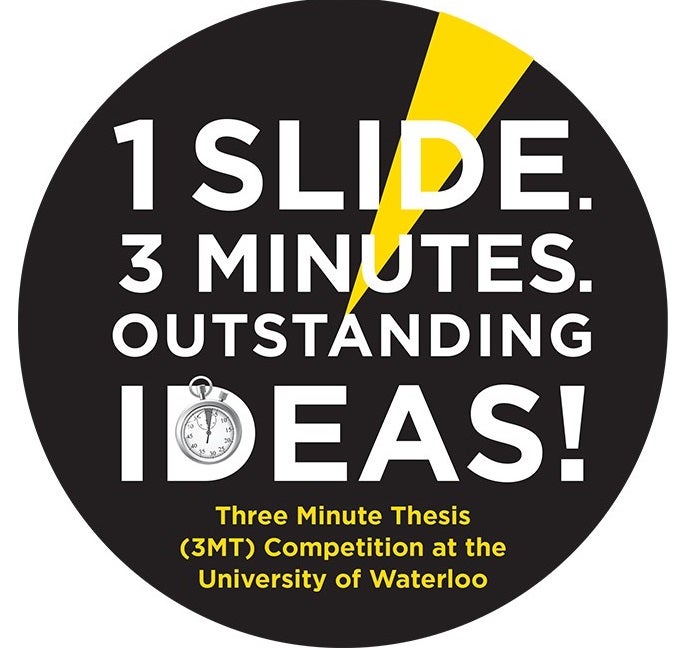
3 Minutes Thesis (3MT) finalists from across six University of Waterloo faculties will compete to win money and advance to the 3MT Provincial finals!
Competitors will have 1 static slide and 3 minutes to present the breadth and significance of their graduate research to a non-specialist panel of judges.
This workshop offers graduate students an introduction to the world of academic publishing. You will learn about the steps in the publication process, including revising course work before submitting it to journals, communicating effectively with journal editors, and handling comments from reviewers.
Additional information: Registration required.

This full-day event offered by GRADventure, the Library, the Writing and Communication Centre and other campus partners will offer graduate students and postdoctoral fellows an overview of the world of academic publishing.




